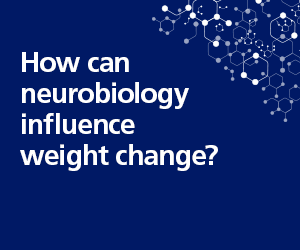The challenge for clinical practice is to consider what is the paradigm shift which needs to occur in weight management interventions that will allow us to rethink obesity in a different way
FREE REGISTRATION: RETHINK OBESITY® WEBINAR SERIES
At the recent Rethink Obesity® webinar held on the 6th May, part of an ongoing series, consideration was given to the use of pathobiology to support weight management programmes and interventions in clinical practice.
The term pathobiology first made an appearance in the medical vernacular around the early 1900’s. The term embodies a concept which emphasis the biological aspects of a disease as much as it’s pathology. So, what is the relevance and perhaps more importantly the context and application of pathobiology in modern-day clinical practice?
Does a focus on the biological causes of obesity and the diseases it spawns become even more meaningful when obesity has been described as today’s ‘perfect storm’? The American Medical Association (AMA) designated obesity as a disease in 2013. This represented an important inflection point in the way in which obesity was conceptualised. As a result, conventional medical opinion that obesity is a product of poor dietary choices and lack of exercise has begun to be transformed.
Scientists are discovering that there is a subclass of endocrine disrupting chemicals (EDCs) that interfere with endocrine signalling, which can disrupt hormonally regulated metabolic processes, especially during early development. These chemicals, called ‘‘obesogens’’, may predispose some people to gain weight due to their effects on metabolic tissues despite efforts to limit caloric intake and increase physical activity. These concepts start to lay the conceptual foundation of thinking of obesity not in simple binary terms as an imbalance of dietary input and energy output but in biological terms as a disease with an independent metabolic pathway.
The pathology of obesity is vast and varied but has a common underlying cause based on weight gain. Obesity is a heterogenous disease related to genetic, psychological, physical, metabolic, neurological, and hormonal impairments. It is intimately linked to heart disease, sleep apnoea, and certain cancers. Obesity is a significant risk factor for a range of conditions such as schizophrenia, osteoarthritis, metabolic syndrome, adult-onset diabetes mellitus and cardiovascular disorders.
This is not new news. The challenge for clinical practice is to consider what is the paradigm shift which needs to occur in weight management interventions that will allow us to rethink obesity in a different way. Considerations of the impact of obesity on these diseases through the lens of pathobiology could allow a clinical management approach which looks at obesity in terms of complication-centric risk stratification.
A series of six webinars accredited by the World Obesity Federation (with support from Novo Nordisk Pharmaceuticals) as part of its Rethink Obesity® virtual experts series are currently being held during the months of April and July to tackle some of these questions and to provide specific guidance on the management of patients living with obesity.
If you would like to participate along with global and local experts in endocrinology, obesity, metabolism and weight loss, psychiatry and psychology free registration is available here.





